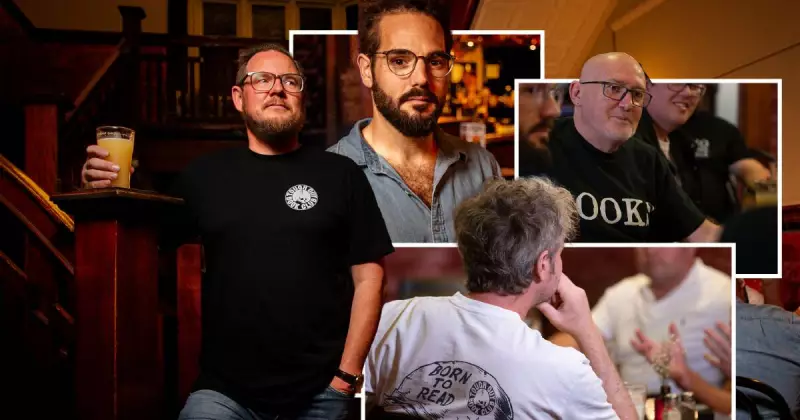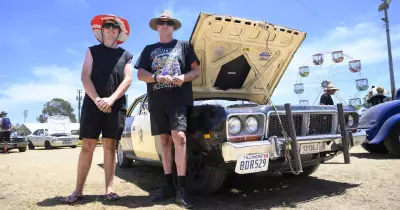
On the first Wednesday of every month, beneath the grand staircase at Mayfield's Stag & Hunter Hotel, you'll find a table scattered with paperbacks and half-empty schooner glasses. This is where the Tough Guy Book Club, specifically the Mayfield chapter known as the 'Goons', gathers for hours of rowdy, passionate conversation about literature.
More Than Just Books
Founded approximately 13 years ago in Collingwood by Shay Leighton, the Tough Guy Book Club began as a response to what Leighton perceived as guys in pubs becoming 'a bunch of boring pricks with nothing to say'. His solution was simple yet profound: put heavy duty discussion back on the table.
The movement has since grown to about 150 chapters worldwide, with several located in Newcastle alone. Leighton stresses this isn't a service provided from the top down, but a culture built from the ground up. 'We don't do things for people,' he says. 'We do things with people.'
Desmond Doyle, president of the Mayfield chapter, sees the club as both a social outlet and a form of leisure therapy. He's passionate about normalising reading as a male activity. 'Having people see men reading,' Doyle explains. 'Guys reading on the bus, on the train; have kids seeing that. I think that is so important.'
Challenging the Data on Male Reading
Concerns about declining reading habits among men have been frequently reported, but the reality is more nuanced. The 2021 Australian Bureau of Statistics Time Use Survey found:
- About one in four women read daily on average
- Fewer than one in five men reported daily reading
However, these surveys often define reading narrowly, excluding online news consumption. Broader research, including the National Institute of Education's 2025 snapshot, points to a global decline in young people's attitudes to reading irrespective of gender.
The National Reading Survey of 2021 revealed nearly one in four Australians hadn't read a book in the preceding 18 months, suggesting the issue isn't specifically male reading decline but rather a time-poor, work-stressed population struggling to maintain reading habits amid digital distractions.
A Safe Space for Real Conversation
Dylan Board joined the Mayfield Goons about eight months ago after moving from Victoria to Newcastle. Feeling burned out and disconnected, he approached with hesitation, expecting 'a bunch of old blokes reading Tom Clancy books and talking about their prostates'.
What he found instead was a transformative support network. During a particularly rough period involving a break-up and the death of his dog, the club's discussion of Terry Pratchett's Reaper Man became unexpectedly meaningful. 'I had a bit of a breakdown,' Board recalls. 'If I didn't have this, where would I have done that? It's been a rough year for me, but I've felt totally safe talking to these guys.'
The club operates with two strict rules: no work talk, and more directly, '100 per cent, don't be a f---head'. This creates an environment where vulnerability is possible.
Beyond Stereotypes
The club's reading lists might seem predictable at first glance - often featuring 'old dead white guys' like Mailer, Hemingway, and Bukowski that members find relatable. But the selection also includes diverse voices like Murakami's magical realism and Sartre's absurdist philosophy.
Leighton pushes back against what he calls the 'language of deficit' surrounding male reading. While recent commentary, including a New York Times essay, suggested men are regressing 'educationally, emotionally and culturally', Leighton points out that almost every single book ever published has been published by a guy.
The Tough Guy Book Club represents something simpler and more profound than social advocacy. 'I don't have a list of solutions that I think men need,' Leighton says. 'I'm just a guy who likes books and friends and pubs.'
For the men of the Mayfield Goons and chapters worldwide, that's more than enough. They meet again in December, continuing to prove that the literary man isn't just alive - he's gathering in pubs, turning pages, and having conversations that matter.





